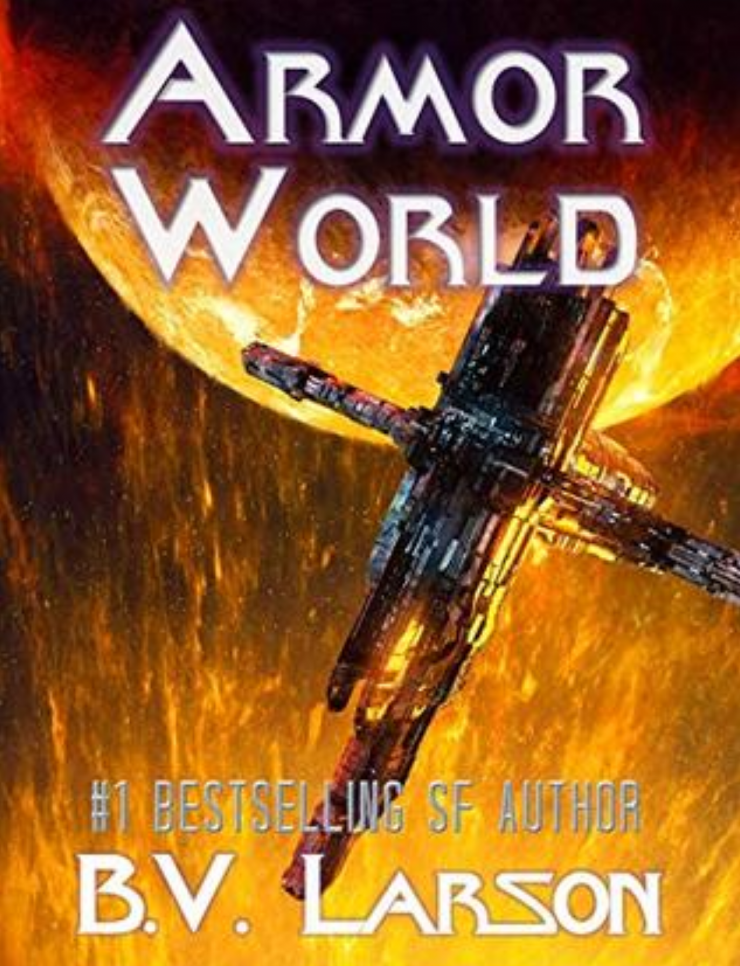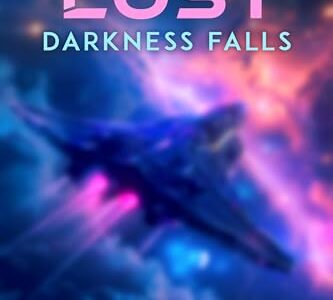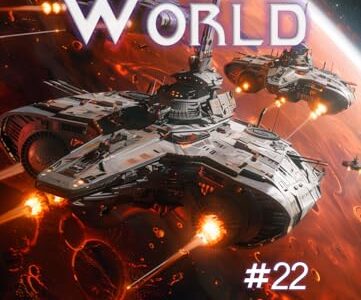Pros
- More of what you like about the action, fighting, and dying in Undying Mercenaries
- Enemy is more advanced than any other alien Earth has fought
- Characters don’t focus as much on McGill’s dumb luck
- We learn more about the state of affairs between the Mogwa and the Skay
Cons
- There’s not much difference in what opponents Earth faces: they’re all essentially treated in the same manner
- Beginning of story implies that there might be more about McGill’s family, Della and his daughter Etta, but that’s not the case
If you’ve read all of Undying Mercenaries up to this point, then you know exactly what you’re getting into when it comes to the this book.
The first few books were exciting because of the progression that James McGill makes, but it seems like there’s really no difference as to what enemies Earth faces. The result is the same: McGill stumbles across some solution that saves the day.
Plot
A large, moon-sized ship made of compressed star material shows up and invades Earth. Legion Varus, including James McGill and Turov, are sent to defend the planet and fight off the unknown invader.
Characters
The same cast of characters from previous book make an appearance in this character. Drusus, Turov, and the rest of legion Varus show up.
Admiral Sateekas shows up with his fleet as well.
Setting
The story starts on Earth, moves to 51 Pegasi, and then into the armored planetoid.
Armor World Review
Armor World is a fun continuation of what readers have come to enjoy about Undying Mercenaries.
Because characters don’t die, Larson is able to recycle them over and over for each iteration of the series. That’s both good and bad. It’s good because we get to see more of the characters that we’ve come to enjoy. But it’s also bad because these characters, outside of military rank, don’t really seem to grow.
My other reviews on this series have likely mentioned the same issue. However, the revival machine provides a good justification for why these characters don’t really mature. It could be that revivals don’t necessarily contain the most updated versions of people, leaving some to lose some of their memories. We see this happen to various characters throughout the series.
Despite the dynamic story universe, the characters remain fairly static. What this means is that these characters will fight an endless procession of enemies. Whether they’re weird semi-human monstrosities, machines, or cyborgs, legion Varus will always persevere due to McGill’s luck and antics.
Regardless, by Book 11, I knew what I was going to get. And Larson met those expectations. What we have is James McGill being James McGill, and his luck and seemingly divine inspiration lead him to victory.
I did appreciate how the characters seemed to avoid insulting McGill’s intelligence. The constant repetition and insult to McGill’s intelligence in previous books were tiring. You’d think that the people around him would give him more credit. If McGill’s actions lead to success time and time again, then surely, there must be more than an element of luck involved. And his superiors seem to have realized that in this book.
One aspect of the book that was a little disappointing is the lack of story behind Etta. I was hoping we’d see more about her in this book, and the start of the story suggested that perhaps Etta would join McGill in Varus. We also don’t learn much about Della except for the brief mention where she’s ripped apart by some machines while scouting. Both Della and Etta seem almost an afterthought to the story, and their absence would have probably been better.
What’s also missing is the interplay between the characters. There’s less whining and complaining among the troops, and the Legionnaires aren’t really front and center in this story. Whereas previous stories focused on Varus and the Legionnaires, this story focuses more on McGill and his superiors than it does on Varus.
What’s present is the sexism from McGill. The protagonist’s womanizing and sexism are a staple by this point, but I find I’m getting tired of it. I imagine we could do with less of that and more action, but I imagine readers would then question the absence.
Overall, the book delivers exactly what readers have come to enjoy about Larson and his works. Each book in the series introduces some new idea or obstacle, and Legion Varus and James McGill do their best to overcome this obstacle. I sometimes feel like that the enemies that McGill or Earth faces are one-dimensional, but the action and fighting scenes kind of make up for the shallow enemies.
What does change from book to book is Earth’s relationship with the Mogwa and Earth’s place in the empire. Armor World is leading to some big changes in the Undying Mercenaries universe. That’s going to be a great change of pace for the direction of the series, especially if Larson is headed toward a universe thrown into chaos by the change in power among the Galactics.



